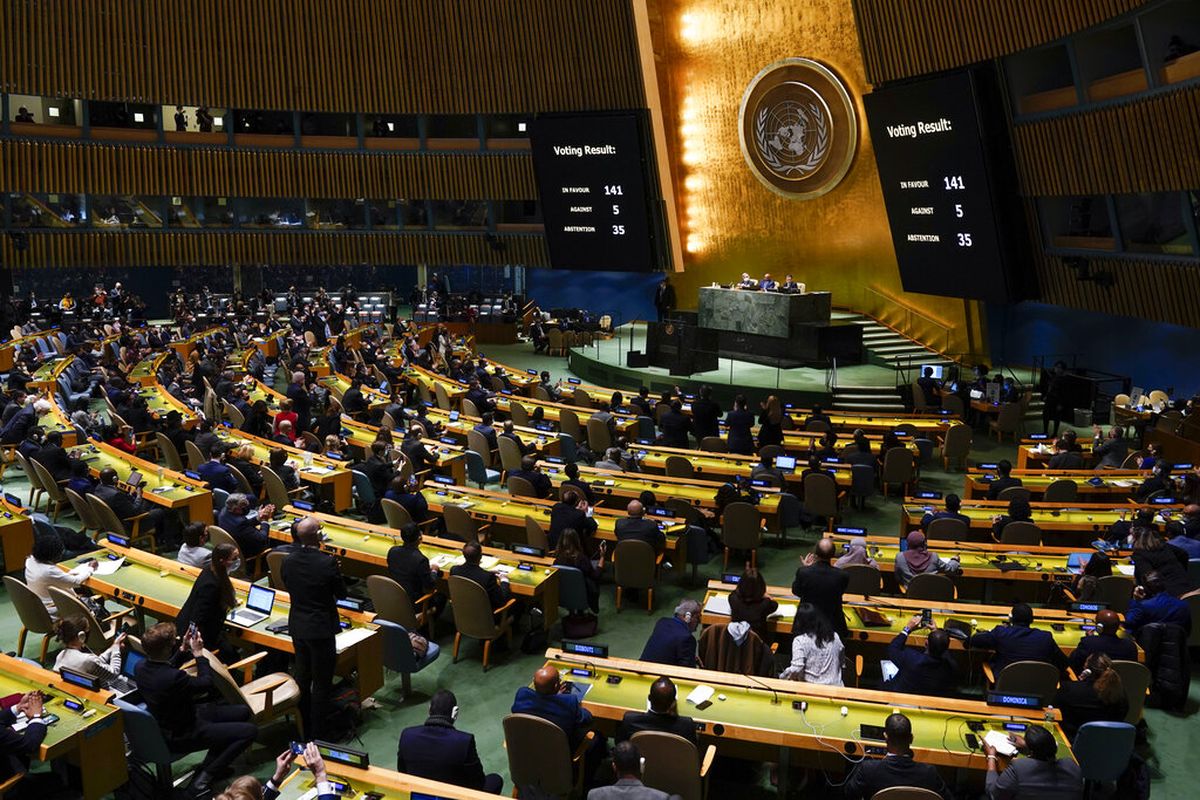
KOMPAS.com - Almost two weeks into the Russian invasion of Ukraine, the response from other parts of the world is being called into question. Last Wednesday, nine of the 11 Southeast Asian states voted for a UN General Assembly resolution reprimanding Moscow for its invasion and calling for peace. Vietnam and Laos, two historic partners of Russia, abstained.
Aside from the casting of diplomatic votes, however, the response from Southeast Asian governments has been diverse — and, some say, muted. Singapore made the rare decision to impose sanctions on Russia, and Indonesia quickly criticized the actions of Russian President Vladimir Putin. The Philippines, a US treaty ally, flip-flopped and described itself as neutral. Meanwhile, Thailand and Malaysia have remained quiet.
Russia seen as a major trade partner
Many regional leaders have called for peace but have tried not to take sides in the conflict. Russia is the ninth-largest trading partner of the Association of Southeast Asian Nations (ASEAN), which is a possible reason that some leaders have chosen not to criticize Moscow. More importantly, Russia is the region’s biggest arms supplier, according to the Stockholm International Peace Research Institute.
More than 80 percent of Vietnamese military equipment has been provided by Russia since 2000. Moscow has also sold weapons to Indonesia, Malaysia, Thailand, and the Philippines, while it is one of the main providers of munitions to the military junta that took power in Myanmar in February 2021. Last December, Jakarta hosted the first Russia-ASEAN joint maritime exercise.
Also read: 80 Indonesian Evacuees from Ukraine Arrive Home
Zachary Abuza, a professor at the National War College in the United States, said the military angle could be overstated. Most of Russia’s arms exports are concentrated in Vietnam and Myanmar, he noted, and sales to other regional states have failed to expand as Moscow hoped. “There are a lot of one-off deals,” Abuza said.
Instead, he points to other explanations. Sections of the Southeast Asian political elite look up to Putin as a strong leader who has railed against a US-led world order, he said. The outgoing Philippine president, Rodrigo Duterte, has hailed Putin as his “favorite hero.” Last year, Cambodia’s prime minister, Hun Sen, awarded the Russian leader with an “Order of Friendship.”
Aversion to ‘meddling’ in distant affairs
According to some analysts, Southeast Asian governments don’t want to frustrate China, which so far has offered a cryptic response to the Ukraine war. Several Southeast Asian states are in competition with Beijing over disputed territory in the South China Sea, and the region is not keen to escalate the US-China rivalry.
But Shada Islam, a Brussels-based commentator on Asian international relations, reckons the response is less to do with China than with “the region’s traditional wariness of meddling in other countries’ affairs” especially over what appears to some to be a distant crisis in eastern Europe.
Days after the invasion, Philippine Defense Secretary, Delfin Lorenzana, said, “It’s none of our business to meddle in whatever they’re doing in Europe.”
Also read: Indonesia Continues to Evacuate its Citizens from Ukraine
The US and the European countries “are disappointed and a bit confused about this and are hoping they can convince [Southeast Asian governments] to change their minds,” Islam said.
For decades, Southeast Asian governments have taken a strict policy of non-interference in any other country’s affairs — the so-called “ASEAN Way.” Cracks appeared to be forming in this position, though, after several regional governments took a tough line by disinviting Myanmar’s military junta from regional summits last year.
































